Campus/People
-
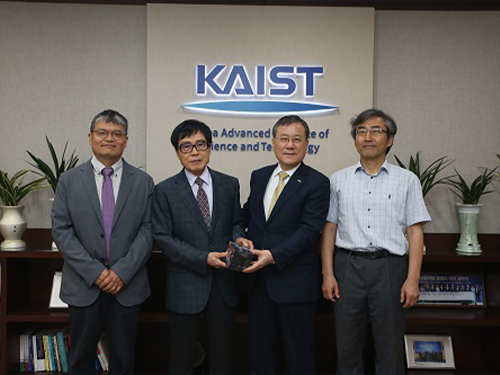 Emeritus Professor JaeKwan Kim Makes Generous Gift
(From left: Dean of the Dept. Physics Eunseong Kim, Emeritus Professor JaeKwan Kim, KAIST President Sung-Chul Shin and Professor Soon Chil Lee)
Emeritus Professor JaeKwan Kim from the Department of Physics made a one hundred million won contribution to KAIST.
He joined KAIST in 1972 and for the next 25 years he dedicated himself to carrying out research and fostering students.
Professor Kim said, “It was a great pleasure and honor to dedicate myself to the development of KAIST as well as Korea. Although I only contributed a small amount of money, I hope that it will help to sustain the development of KAIST. I will continue to support the school behind the scenes.”
He also mentioned that it is meaningful to deliver this fund to KAIST President Sung-Chul Shin, who is the first alumnus president and also his former student.
President Shin said, “His warm heart towards his students will be a priceless gift for the development of KAIST. Not only the Department of Physics, but the entire school will need to work together to help us become a global value-creative leading university and contribute to the country and its people.”
2018.06.12 View 3518
Emeritus Professor JaeKwan Kim Makes Generous Gift
(From left: Dean of the Dept. Physics Eunseong Kim, Emeritus Professor JaeKwan Kim, KAIST President Sung-Chul Shin and Professor Soon Chil Lee)
Emeritus Professor JaeKwan Kim from the Department of Physics made a one hundred million won contribution to KAIST.
He joined KAIST in 1972 and for the next 25 years he dedicated himself to carrying out research and fostering students.
Professor Kim said, “It was a great pleasure and honor to dedicate myself to the development of KAIST as well as Korea. Although I only contributed a small amount of money, I hope that it will help to sustain the development of KAIST. I will continue to support the school behind the scenes.”
He also mentioned that it is meaningful to deliver this fund to KAIST President Sung-Chul Shin, who is the first alumnus president and also his former student.
President Shin said, “His warm heart towards his students will be a priceless gift for the development of KAIST. Not only the Department of Physics, but the entire school will need to work together to help us become a global value-creative leading university and contribute to the country and its people.”
2018.06.12 View 3518 -
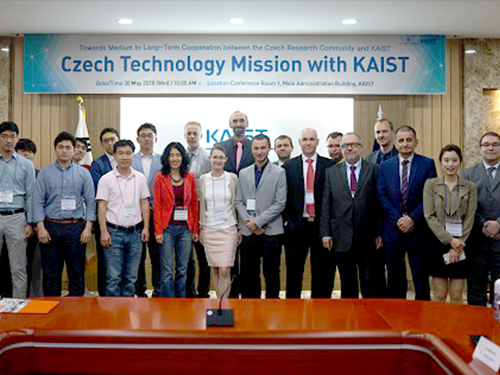 Czech Technology Mission with KAIST
Members of the Czech research community visited KAIST to discuss medium to long-term cooperation with KAIST. This visit was hosted by the Fourth Industrial Revolution Intelligence Center (FIRIC).
The community is comprised of people from Czech enterprises and academic institutes that are leading core technologies for the Fourth Industrial Revolution in the fields of AI, robotics, and biotechnology. They had a chance to meet KAIST professors and visit research labs.
Professor Il-Doo Kim from the Department of Materials Science and Engineering, Professor Seongsu Kim from the Department of Mechanical Engineering, and Professor Hyun Uk Kim from the Department of Chemical and Biomolecular Engineering attended the meeting, which took place in the Mechatronics, Systems, and Control Lab under the Vice President for Planning and Budget Soo Hyun Kim and Professor Kyung Soo Kim from the Department of Mechanical Engineering.
Professor Petr Novák from the Technical University of Ostrava said, “It was a meaningful meeting to help understand research trends on industrial robots in Korea.” Professor So Young Kim from FIRIC said, “The Czech research community is strong in basic research where KAIST has outstanding source technology. I hope this visit will open up a path for medium to long-term cooperation on sharing research and technology know-how between the Czech research community and KAIST.”
2018.06.07 View 7216
Czech Technology Mission with KAIST
Members of the Czech research community visited KAIST to discuss medium to long-term cooperation with KAIST. This visit was hosted by the Fourth Industrial Revolution Intelligence Center (FIRIC).
The community is comprised of people from Czech enterprises and academic institutes that are leading core technologies for the Fourth Industrial Revolution in the fields of AI, robotics, and biotechnology. They had a chance to meet KAIST professors and visit research labs.
Professor Il-Doo Kim from the Department of Materials Science and Engineering, Professor Seongsu Kim from the Department of Mechanical Engineering, and Professor Hyun Uk Kim from the Department of Chemical and Biomolecular Engineering attended the meeting, which took place in the Mechatronics, Systems, and Control Lab under the Vice President for Planning and Budget Soo Hyun Kim and Professor Kyung Soo Kim from the Department of Mechanical Engineering.
Professor Petr Novák from the Technical University of Ostrava said, “It was a meaningful meeting to help understand research trends on industrial robots in Korea.” Professor So Young Kim from FIRIC said, “The Czech research community is strong in basic research where KAIST has outstanding source technology. I hope this visit will open up a path for medium to long-term cooperation on sharing research and technology know-how between the Czech research community and KAIST.”
2018.06.07 View 7216 -
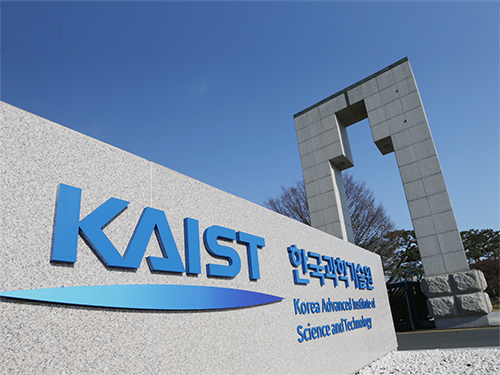 KAIST Ranked 40th in the QS World University Rankings
KAIST ranked 40th in the 2018 QS World University Rankings, one place higher than last year. According to the QS (Quacquarelli Symonds) World’s Top 100 universities released on June 7, KAIST is the second highest ranked Korean university among the five Korean universities listed, following Seoul National University which ranked 36th.
KAIST displayed outstanding performance by ranking 16th in citations per faculty. In the 2018 rankings, universities that are strong in science, technology, and engineering claimed some of the highest positions. MIT topped the list and Caltech took fourth, ETH Zurich seventh, followed by Imperial College London which took eighth.
According to the analysis compiled by QS, universities focusing on science and technology are dominating the global universities rankings. This tendency comes from the fact that engineering schools have an advantage when evaluating the quality of research according to the number of citations per faculty member.
Provost O Ok Park predicts that science and technology will be key players in the Fourth Industrial Revolution era. “In the coming years, universities that excel in multi and interdisciplinary research will lead future growth. KAIST also continues to focus on transdisciplinary education and research,” he said.
2018.06.07 View 5042
KAIST Ranked 40th in the QS World University Rankings
KAIST ranked 40th in the 2018 QS World University Rankings, one place higher than last year. According to the QS (Quacquarelli Symonds) World’s Top 100 universities released on June 7, KAIST is the second highest ranked Korean university among the five Korean universities listed, following Seoul National University which ranked 36th.
KAIST displayed outstanding performance by ranking 16th in citations per faculty. In the 2018 rankings, universities that are strong in science, technology, and engineering claimed some of the highest positions. MIT topped the list and Caltech took fourth, ETH Zurich seventh, followed by Imperial College London which took eighth.
According to the analysis compiled by QS, universities focusing on science and technology are dominating the global universities rankings. This tendency comes from the fact that engineering schools have an advantage when evaluating the quality of research according to the number of citations per faculty member.
Provost O Ok Park predicts that science and technology will be key players in the Fourth Industrial Revolution era. “In the coming years, universities that excel in multi and interdisciplinary research will lead future growth. KAIST also continues to focus on transdisciplinary education and research,” he said.
2018.06.07 View 5042 -
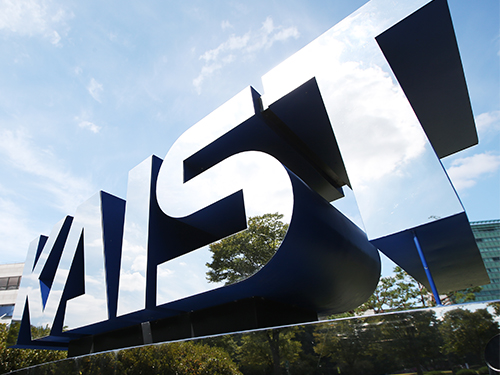 KAIST Ranked the Most Innovative University in Asia 3 Years in a Row
KAIST was ranked the most innovative university in the Asia Pacific region for the third consecutive year. The 2018 Reuter Top 75: Asia’s Most Innovative Universities announced that KAIST topped three of the ten indicators identifying the educational institutions doing the most to advance science, invent new technologies, and power new markets and industries.
KAIST was the top for the number of total patents, patents granted, and commercial impact. KAIST filed 1,000 patents from 2011 to 2016, and earned a 79.8% success rate for patent registrations. In terms of commercial impact, KAIST has almost double the score (59.6) of the University of Tokyo (31.3), who was ranked second. Among top ten most innovative universities in Asia, there were four Korean universities, including Postech, Seoul National University, and Sungkyunkwan University, four Japanese universities, and one each from China and Singapore.
KAIST researchers submitted more patents than any other university on the list, and those patents are frequently cited by outside researchers in their own patents and papers. Those are key criteria in Reuters’ ranking of Asia Pacific’s Most Innovative Universities, which was compiled in partnership with Clarivate Analytics, and is based on proprietary data and an analysis of indicators including patent filings and research paper citations.
2018.06.05 View 6649
KAIST Ranked the Most Innovative University in Asia 3 Years in a Row
KAIST was ranked the most innovative university in the Asia Pacific region for the third consecutive year. The 2018 Reuter Top 75: Asia’s Most Innovative Universities announced that KAIST topped three of the ten indicators identifying the educational institutions doing the most to advance science, invent new technologies, and power new markets and industries.
KAIST was the top for the number of total patents, patents granted, and commercial impact. KAIST filed 1,000 patents from 2011 to 2016, and earned a 79.8% success rate for patent registrations. In terms of commercial impact, KAIST has almost double the score (59.6) of the University of Tokyo (31.3), who was ranked second. Among top ten most innovative universities in Asia, there were four Korean universities, including Postech, Seoul National University, and Sungkyunkwan University, four Japanese universities, and one each from China and Singapore.
KAIST researchers submitted more patents than any other university on the list, and those patents are frequently cited by outside researchers in their own patents and papers. Those are key criteria in Reuters’ ranking of Asia Pacific’s Most Innovative Universities, which was compiled in partnership with Clarivate Analytics, and is based on proprietary data and an analysis of indicators including patent filings and research paper citations.
2018.06.05 View 6649 -
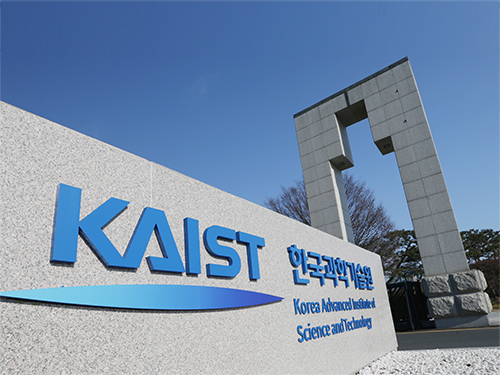 The Center for Anthropocene Studies (CAS) Opens
KAIST will start Anthropocene research, a convergence field of study, to address issues related to the commencement of human activities that have had scientific, industrial, and economic impacts on the Earth’s ecosystem. The National Research Foundation (NRF) of Korea endorsed the KAIST Center for Anthropocene Studies as its Convergence Research Center project.
Anthropocene refers to a new geological age in which various polluting materials that humans have made during the post-industrial revolution era have made a significant impact on the Earth and the lives of humankind. The studies expand the diverse socio-economic and environmental sectors for responding to climate change, natural disasters, ecological destruction, the polarization of the inequality and wealth, and many others.
The KAIST research group at the center, in collaboration with the Graduate School of Science and Technology Policy, the Graduate School of Culture Technology, the School of Humanities & Social Sciences, the Department of Industrial Design, the School of Electrical Engineering, the Satellite Technology Research Center (SaRTec), and the KAIST Initiative for Disaster Studies will conduct multidisciplinary research to address intriguing challenges with complex but creative approaches incorporating the fields of engineering, socioeconomics, and art.
The group will investigate topics such as▲ surface and marine changes to the Earth by applying satellite data ▲disaster prediction and governance system building through AI modeling ▲sustainable housing, transportation, and lifestyles ▲ engineering and artistic approaches for envisioning a new future for humankind and the Earth.
Professor Buhm Soon Park, who is in charge of the center, said, “This pioneering research work will inspire the re-creation of a new paradigm of convergence studies in science, engineering, humanities, and social science. We will contribute to making the world better by designing new technologies and social policies.
2018.06.05 View 12750
The Center for Anthropocene Studies (CAS) Opens
KAIST will start Anthropocene research, a convergence field of study, to address issues related to the commencement of human activities that have had scientific, industrial, and economic impacts on the Earth’s ecosystem. The National Research Foundation (NRF) of Korea endorsed the KAIST Center for Anthropocene Studies as its Convergence Research Center project.
Anthropocene refers to a new geological age in which various polluting materials that humans have made during the post-industrial revolution era have made a significant impact on the Earth and the lives of humankind. The studies expand the diverse socio-economic and environmental sectors for responding to climate change, natural disasters, ecological destruction, the polarization of the inequality and wealth, and many others.
The KAIST research group at the center, in collaboration with the Graduate School of Science and Technology Policy, the Graduate School of Culture Technology, the School of Humanities & Social Sciences, the Department of Industrial Design, the School of Electrical Engineering, the Satellite Technology Research Center (SaRTec), and the KAIST Initiative for Disaster Studies will conduct multidisciplinary research to address intriguing challenges with complex but creative approaches incorporating the fields of engineering, socioeconomics, and art.
The group will investigate topics such as▲ surface and marine changes to the Earth by applying satellite data ▲disaster prediction and governance system building through AI modeling ▲sustainable housing, transportation, and lifestyles ▲ engineering and artistic approaches for envisioning a new future for humankind and the Earth.
Professor Buhm Soon Park, who is in charge of the center, said, “This pioneering research work will inspire the re-creation of a new paradigm of convergence studies in science, engineering, humanities, and social science. We will contribute to making the world better by designing new technologies and social policies.
2018.06.05 View 12750 -
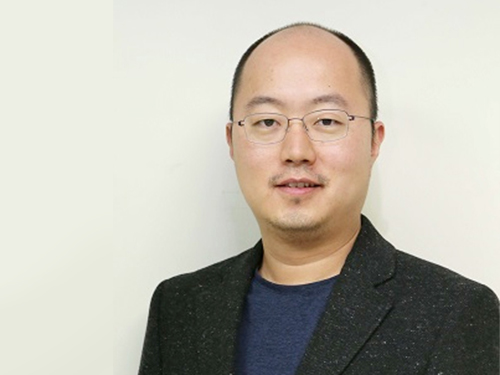 Professor YongKeun Park Wins the 2018 Fumio Okano Award
(Professor Park)
Professor YongKeun Park from the Department of Physics won the 2018 Fumio Okano Award in recognition of his contributions to 3D display technology development during the annual conference of the International Society for Optics and Photonics (SPIE) held last month in Orlando, Florida in the US.
The Fumio Okano Best 3D Paper Prize is presented annually in memory of Dr. Fumio Okano, a pioneer and innovator of 3D displays who passed away in 2013, for his contributions to the field of 3D TVs and displays. The award is sponsored by NHK-ES.
Professor Park and his team are developing novel technology for measuring and visualizing 3D images by applying random light scattering. He has published numerous papers on 3D holographic camera technology and 3000x enhanced performance of 3D holographic displays in renowned international journals such as Nature Photonics, Nature Communications, and Science Advances. His technology has drawn international attention from renowned media outlets including Newsweek and Forbes.
He has established two startups to commercialize his technology. Tomocube specializes in 3D imaging microscopes using holotomographic technology and the company exports their products to several countries including the US and Japan. The.Wave.Talk is exploring technology for examining pre-existing bacteria anywhere and anytime.
Professor Park’s innovations have already been recognized in and out of KAIST. In February, he was selected as the KAISTian of the Year for his outstanding research, commercialization, and startups. He was also decorated with the National Science Award in April by the Ministry of Science and ICT and the Hong Jin-Ki Innovation Award later in May by the Yumin Cultural Foundation.
Professor Park said, “3D holography is emerging as a significant technology with growing potential and positive impacts on our daily lives. However, the current technology lags far behind the levels displayed in SF movies. We will do our utmost to reach this level with more commercialization."
2018.05.31 View 11627
Professor YongKeun Park Wins the 2018 Fumio Okano Award
(Professor Park)
Professor YongKeun Park from the Department of Physics won the 2018 Fumio Okano Award in recognition of his contributions to 3D display technology development during the annual conference of the International Society for Optics and Photonics (SPIE) held last month in Orlando, Florida in the US.
The Fumio Okano Best 3D Paper Prize is presented annually in memory of Dr. Fumio Okano, a pioneer and innovator of 3D displays who passed away in 2013, for his contributions to the field of 3D TVs and displays. The award is sponsored by NHK-ES.
Professor Park and his team are developing novel technology for measuring and visualizing 3D images by applying random light scattering. He has published numerous papers on 3D holographic camera technology and 3000x enhanced performance of 3D holographic displays in renowned international journals such as Nature Photonics, Nature Communications, and Science Advances. His technology has drawn international attention from renowned media outlets including Newsweek and Forbes.
He has established two startups to commercialize his technology. Tomocube specializes in 3D imaging microscopes using holotomographic technology and the company exports their products to several countries including the US and Japan. The.Wave.Talk is exploring technology for examining pre-existing bacteria anywhere and anytime.
Professor Park’s innovations have already been recognized in and out of KAIST. In February, he was selected as the KAISTian of the Year for his outstanding research, commercialization, and startups. He was also decorated with the National Science Award in April by the Ministry of Science and ICT and the Hong Jin-Ki Innovation Award later in May by the Yumin Cultural Foundation.
Professor Park said, “3D holography is emerging as a significant technology with growing potential and positive impacts on our daily lives. However, the current technology lags far behind the levels displayed in SF movies. We will do our utmost to reach this level with more commercialization."
2018.05.31 View 11627 -
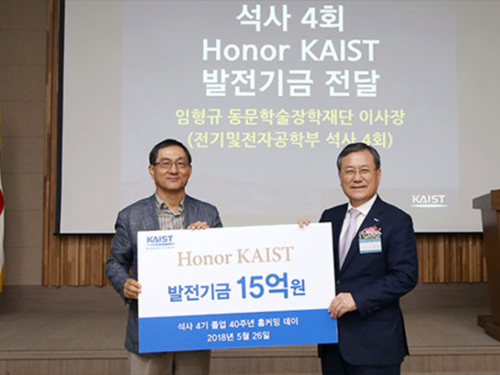 KAIST Class of '78 Celebrates 40-Year Reunion
(from left: Chairman Hyung Kyu Lim from the KAIST Alumni Scholarship Foundation and KAIST President Sung-Chul Shin)
The Class of 1978 reunited on May 26 at the College of Business on the KAIST Seoul Campus, which was the main campus when they were students 40 years ago. Now leaders of Korea in the sectors of industry, academia, and research, the Class of ’78 held a homecoming event in celebration of the 40th anniversary of their graduation.
Approximately 120 guests attended the event, including the head of the KAIST Alumni Association Ki-Chul Cha, Emeritus Professor Jae-Kyoon Kim, and Emeritus Professor Choong-Ki Kim from the School of Electrical Engineering.
The Class of ’78 includes Man Gi Paik from the Ministry of Trade, Industry and Energy, Chairman Hyung Kyu Lim from the KAIST Alumni Scholarship Foundation, President Sang Hyuk Son from Daegu Gyeongbuk Institute of Science & Technology, and Provost and Executive Vice President O Ok Park from KAIST.
At the event, the Class of ‘78 donated a scholarship worth 1.5 billion KRW. Chairman Lim said, “We will put every effort into helping KAIST students who will be future leaders. We hope this fund will go toward students who will create new value and contribute to society.”
President Shin added, “The effort and affection of the alumni will be a strong foundation for KAIST taking the next big step. In response to the support and affection of 61,125 KAIST alumni, KAIST will make every effort to become a world-leading university.”
2018.05.30 View 5745
KAIST Class of '78 Celebrates 40-Year Reunion
(from left: Chairman Hyung Kyu Lim from the KAIST Alumni Scholarship Foundation and KAIST President Sung-Chul Shin)
The Class of 1978 reunited on May 26 at the College of Business on the KAIST Seoul Campus, which was the main campus when they were students 40 years ago. Now leaders of Korea in the sectors of industry, academia, and research, the Class of ’78 held a homecoming event in celebration of the 40th anniversary of their graduation.
Approximately 120 guests attended the event, including the head of the KAIST Alumni Association Ki-Chul Cha, Emeritus Professor Jae-Kyoon Kim, and Emeritus Professor Choong-Ki Kim from the School of Electrical Engineering.
The Class of ’78 includes Man Gi Paik from the Ministry of Trade, Industry and Energy, Chairman Hyung Kyu Lim from the KAIST Alumni Scholarship Foundation, President Sang Hyuk Son from Daegu Gyeongbuk Institute of Science & Technology, and Provost and Executive Vice President O Ok Park from KAIST.
At the event, the Class of ‘78 donated a scholarship worth 1.5 billion KRW. Chairman Lim said, “We will put every effort into helping KAIST students who will be future leaders. We hope this fund will go toward students who will create new value and contribute to society.”
President Shin added, “The effort and affection of the alumni will be a strong foundation for KAIST taking the next big step. In response to the support and affection of 61,125 KAIST alumni, KAIST will make every effort to become a world-leading university.”
2018.05.30 View 5745 -
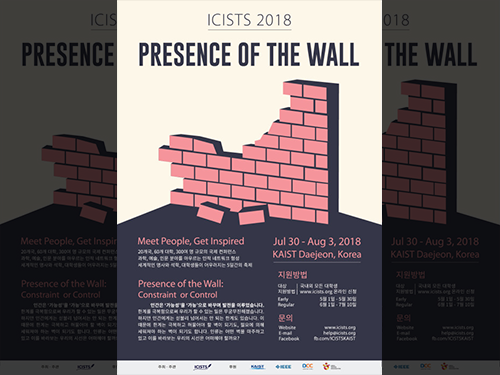 ICISTS 2018: Presence of the Wall, Constraint or Control
A KAIST undergraduates body, ICISTS (International Conference for Integration of Science, Technology and Society) will host the 2018 international conference from July 30 to August 3 at KAIST. Under the theme of “Presence of the Wall: Constraint or Control,” participants will share their opinions on the limits the global world is facing today and look for answers discussing various social issues and technologies. More than 300 students from 60 universities in 15 countries will attend the conference.
Speakers include CEO Sebastien Gendron of TransPod Inc., a Canadian company designing and manufacturing ultra-high-speed transportation technology and vehicles, researcher Sven Kreiss from the Visual Intelligence for Transportation of École Polytechnique Fédérale de Lausanne, Professor Des Freedman from the Department of Media and Communications of Goldsmiths, University of London and political scientist-technologist Wilneida Negrón at the Data & Society Research Institute of Ford Foundation in the US.
The conference will hold programs to facilitate the exchange of ideas among speakers and participants. Participants will make small teams for free discussions to share their ideas and thoughts about issues affecting the human race. Participants will be also assigned a team project in which they must come up with creative ideas based on the lectures. Moreover, they can try new gadgets from companies during the Experience Session.
ICISTS was established in 2005 by undergraduate students from KAIST. The organization holds an international conference every year to explore ways to create harmonization among society, science, and technology. It has grown to become Asia’s largest international student conference.
For learn more and register for the program, please visit http://www.icist.org
2018.05.30 View 6926
ICISTS 2018: Presence of the Wall, Constraint or Control
A KAIST undergraduates body, ICISTS (International Conference for Integration of Science, Technology and Society) will host the 2018 international conference from July 30 to August 3 at KAIST. Under the theme of “Presence of the Wall: Constraint or Control,” participants will share their opinions on the limits the global world is facing today and look for answers discussing various social issues and technologies. More than 300 students from 60 universities in 15 countries will attend the conference.
Speakers include CEO Sebastien Gendron of TransPod Inc., a Canadian company designing and manufacturing ultra-high-speed transportation technology and vehicles, researcher Sven Kreiss from the Visual Intelligence for Transportation of École Polytechnique Fédérale de Lausanne, Professor Des Freedman from the Department of Media and Communications of Goldsmiths, University of London and political scientist-technologist Wilneida Negrón at the Data & Society Research Institute of Ford Foundation in the US.
The conference will hold programs to facilitate the exchange of ideas among speakers and participants. Participants will make small teams for free discussions to share their ideas and thoughts about issues affecting the human race. Participants will be also assigned a team project in which they must come up with creative ideas based on the lectures. Moreover, they can try new gadgets from companies during the Experience Session.
ICISTS was established in 2005 by undergraduate students from KAIST. The organization holds an international conference every year to explore ways to create harmonization among society, science, and technology. It has grown to become Asia’s largest international student conference.
For learn more and register for the program, please visit http://www.icist.org
2018.05.30 View 6926 -
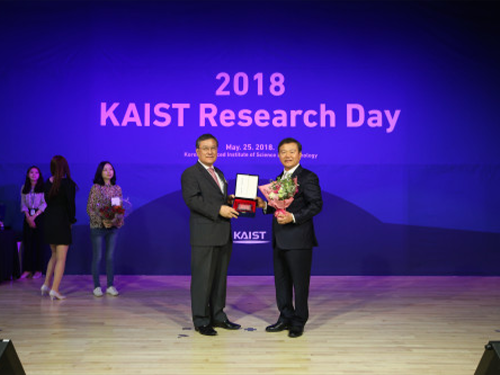 2018 KAIST Research Day Honors Outstanding Research Achievements
(KAIST President Sung-Chul Shin and Professor Jong-Hwan Kim) Professor Jong-Hwan Kim from the School of Electrical Engineering was recognized at the 2018 KAIST Research Day as the Research Grand Prize Awardee. The ten most distinguished research achievements of the past year were also recognized.
The Research Grand Prize recognizes the professor whose comprehensive research performance evaluation indicator was the highest over the past five years. The indicator combines the number of research contracts, IPR and royalty income.
During the May 25th ceremony, Professor Hyochoong Bang from the Department of Aerospace Engineering and Professor In so Kweon from the School of Electrical Engineering also won the Best Research Award prize.
This year, the Research Innovation Award went to Professor Dong Soo Han from the School of Computing. The Research Innovation Award combines scores in the categories of foreign patent registrations, contracts of technological transfer, and income from technology fees, technology consultations, and startups.
The Convergence Research Award was given to Professor Junmo Kim from the School of Electrical Engineering and Professor Hyun Myung from the Department of Civil & Environmental Engineering. The Convergence Research Award recognizes the most outstanding research team that created innovative research results over a one-year period.
President Sung-Chul Shin said, “KAIST has selected the ten most outstanding research achievements of 2017 conducted by our faculty and researchers. All of them demonstrated exceptional creativity, which opens new research paths in each field though their novelty, innovation, and impact.”
KAIST hosts Research Day every year to introduce major research performances at KAIST and share knowledge about the research and development.
During Research Day, KAIST also announced the ten most distinguished research achievements contributed by KAIST professors during the previous year. They are listed below.
▲ High-Speed Motion Core Technology for Magnetic Memory by Professor Kab-Jin Kim from the Department of Physics
▲ A Double Well Potential System by Professor Jaeyoung Byeon from the Department of Mathematical Sciences
▲ Cheap and Efficient Dehydrogenation of Alkanes by Professor Mu-Hyun Baik from the Department of Chemistry
▲ A Dynamic LPS Transfer Mechanism for Innate Immune Activation by Professor Ho Min Kim from the Graduate School of Medical Science and Engineering
▲ A Memristive Functional Device and Circuit on Fabric for Fibertronics by Professor Yang-Kyu Choi and Professor Sung-Yool Choi from the School of Electrical Engineering
▲ A Hippocampal Morphology Study Based on a Progressive Template Deformable Model by Professor Jinah Park from the School of Computing
▲ The Development of a 6-DOF Dynamic Response Measurement System for Civil Infrastructure Monitoring by Professor Hoon Sohn from the Department of Civil and Environmental Engineering
▲ Cooperative Tumour Cell Membrane Targeted Phototherapy by Professor Ji-Ho Park from the Department of Bio and Brain Engineering
▲ HUMICOTTA: A 3D-Printed Terracotta Humidifier by Professor Sangmin Bae from the Department of Industrial Design
▲ Ultrathin, Cross-Linked Ionic Polymer Thin Films by Professor Sung Gap Im from the Department of Chemical and Biomolecular Engineering
2018.05.28 View 11899
2018 KAIST Research Day Honors Outstanding Research Achievements
(KAIST President Sung-Chul Shin and Professor Jong-Hwan Kim) Professor Jong-Hwan Kim from the School of Electrical Engineering was recognized at the 2018 KAIST Research Day as the Research Grand Prize Awardee. The ten most distinguished research achievements of the past year were also recognized.
The Research Grand Prize recognizes the professor whose comprehensive research performance evaluation indicator was the highest over the past five years. The indicator combines the number of research contracts, IPR and royalty income.
During the May 25th ceremony, Professor Hyochoong Bang from the Department of Aerospace Engineering and Professor In so Kweon from the School of Electrical Engineering also won the Best Research Award prize.
This year, the Research Innovation Award went to Professor Dong Soo Han from the School of Computing. The Research Innovation Award combines scores in the categories of foreign patent registrations, contracts of technological transfer, and income from technology fees, technology consultations, and startups.
The Convergence Research Award was given to Professor Junmo Kim from the School of Electrical Engineering and Professor Hyun Myung from the Department of Civil & Environmental Engineering. The Convergence Research Award recognizes the most outstanding research team that created innovative research results over a one-year period.
President Sung-Chul Shin said, “KAIST has selected the ten most outstanding research achievements of 2017 conducted by our faculty and researchers. All of them demonstrated exceptional creativity, which opens new research paths in each field though their novelty, innovation, and impact.”
KAIST hosts Research Day every year to introduce major research performances at KAIST and share knowledge about the research and development.
During Research Day, KAIST also announced the ten most distinguished research achievements contributed by KAIST professors during the previous year. They are listed below.
▲ High-Speed Motion Core Technology for Magnetic Memory by Professor Kab-Jin Kim from the Department of Physics
▲ A Double Well Potential System by Professor Jaeyoung Byeon from the Department of Mathematical Sciences
▲ Cheap and Efficient Dehydrogenation of Alkanes by Professor Mu-Hyun Baik from the Department of Chemistry
▲ A Dynamic LPS Transfer Mechanism for Innate Immune Activation by Professor Ho Min Kim from the Graduate School of Medical Science and Engineering
▲ A Memristive Functional Device and Circuit on Fabric for Fibertronics by Professor Yang-Kyu Choi and Professor Sung-Yool Choi from the School of Electrical Engineering
▲ A Hippocampal Morphology Study Based on a Progressive Template Deformable Model by Professor Jinah Park from the School of Computing
▲ The Development of a 6-DOF Dynamic Response Measurement System for Civil Infrastructure Monitoring by Professor Hoon Sohn from the Department of Civil and Environmental Engineering
▲ Cooperative Tumour Cell Membrane Targeted Phototherapy by Professor Ji-Ho Park from the Department of Bio and Brain Engineering
▲ HUMICOTTA: A 3D-Printed Terracotta Humidifier by Professor Sangmin Bae from the Department of Industrial Design
▲ Ultrathin, Cross-Linked Ionic Polymer Thin Films by Professor Sung Gap Im from the Department of Chemical and Biomolecular Engineering
2018.05.28 View 11899 -
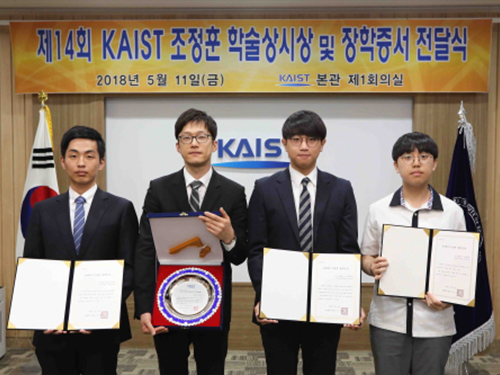 Yoon Ki Hong Named 2018 Jeong Hun Cho Awardee
(From left: PhD candidate Seungkwan Baek from the Department of Aerospace Engineering, Dr. Yoon Ki Hong from ADD, PhD candidate Wonhee Choi from the School of Mechanical Engineering at Korea University, and Jaehun Lee from Kongju National University High School)
Dr. Yoon Ki Hong from the Agency of Defense Development (ADD) was named the 2018 recipient of the Jong-Hoon Cho Award. The award recognizes outstanding young scientists in the field of aerospace engineering annually. The recipient of this award receives a 25 million KRW prize.
The Award Committee said that Dr. Hong has achieved outstanding work in the field of aerospace engineering. In particular, he conducted research on designing an air heating device which is the crucial component for ground experimental equipment. It is required for testing and evaluating supersonic vehicles’ structural strength tests using technology cannot be imported. In cooperation with his colleagues, he succeeded in developing an air heating device, a feat that has only been accomplished by developed countries. He also verified its operational performance.
Moreover, he received the best paper award from Korean Federation of Science and Minister of Defense Acquisition Program Administration’s Prize.
The award was endowed by the family of the late PhD candidate Jeong Hun Cho, who died in a rocket lab accident in the Department of Aerospace Engineering in 2003. Cho was posthumously conferred an honorary doctorate degree.
In Cho’s memory, his father established the ‘Jeong Hun Cho Award and Scholarship’. Since 2005, the scholarship annually selects three young scholars specializing in aerospace engineering from Cho’s alma maters of KAIST, Korea University, and Kongju National University High School.
In addition to Dr. Hong, the Award Committee chose three students for scholarships: PhD candidate Seungkwan Baek from the Department of Aerospace Engineering, PhD candidate Wonhee Choi from the School of Mechanical Engineering at Korea University, and Jaehun Lee from Kongju National University High School.
2018.05.11 View 10414
Yoon Ki Hong Named 2018 Jeong Hun Cho Awardee
(From left: PhD candidate Seungkwan Baek from the Department of Aerospace Engineering, Dr. Yoon Ki Hong from ADD, PhD candidate Wonhee Choi from the School of Mechanical Engineering at Korea University, and Jaehun Lee from Kongju National University High School)
Dr. Yoon Ki Hong from the Agency of Defense Development (ADD) was named the 2018 recipient of the Jong-Hoon Cho Award. The award recognizes outstanding young scientists in the field of aerospace engineering annually. The recipient of this award receives a 25 million KRW prize.
The Award Committee said that Dr. Hong has achieved outstanding work in the field of aerospace engineering. In particular, he conducted research on designing an air heating device which is the crucial component for ground experimental equipment. It is required for testing and evaluating supersonic vehicles’ structural strength tests using technology cannot be imported. In cooperation with his colleagues, he succeeded in developing an air heating device, a feat that has only been accomplished by developed countries. He also verified its operational performance.
Moreover, he received the best paper award from Korean Federation of Science and Minister of Defense Acquisition Program Administration’s Prize.
The award was endowed by the family of the late PhD candidate Jeong Hun Cho, who died in a rocket lab accident in the Department of Aerospace Engineering in 2003. Cho was posthumously conferred an honorary doctorate degree.
In Cho’s memory, his father established the ‘Jeong Hun Cho Award and Scholarship’. Since 2005, the scholarship annually selects three young scholars specializing in aerospace engineering from Cho’s alma maters of KAIST, Korea University, and Kongju National University High School.
In addition to Dr. Hong, the Award Committee chose three students for scholarships: PhD candidate Seungkwan Baek from the Department of Aerospace Engineering, PhD candidate Wonhee Choi from the School of Mechanical Engineering at Korea University, and Jaehun Lee from Kongju National University High School.
2018.05.11 View 10414 -
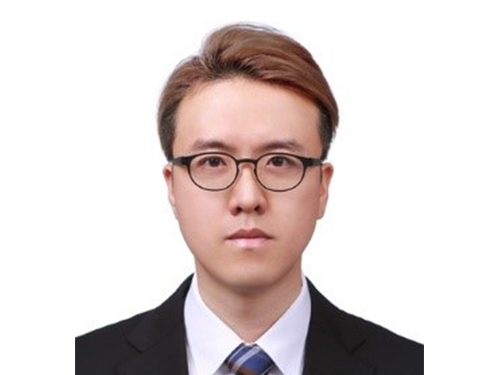 The First Recipient of the KPS Award in Plasma Physics
( Research Professor Sanghoo Park)
Research Professor Sanghoo Park received the Young Researcher Award in Plasma Physics during the Korean Physical Society (KPS)’s Spring Meeting from April 25 to 27.
He is a KAIST graduate with a PhD in Physics and currently holds the position of research professor in the Department of Nuclear and Quantum Engineering.
The Young Researcher Award in Plasma Physics is given to a specialist in plasma who has the potential to make a contribution to plasma and accelerator physics in Korea.
Professor Park has gained recognition for his work, including awards, publications in 24 journals, and 12 technical patent registrations of plasma, which led to his selection as the recipient of this award.
He is now conducting a leading role in this field nationally and internationally by delving into the study of partially-ionized plasma.
Professor Park said, “It is my great honor to become the first recipient of the Young Researcher Award in Plasma Physics. I will continue to engage in research to develop the field of plasma in Korea.”
2018.05.08 View 7159
The First Recipient of the KPS Award in Plasma Physics
( Research Professor Sanghoo Park)
Research Professor Sanghoo Park received the Young Researcher Award in Plasma Physics during the Korean Physical Society (KPS)’s Spring Meeting from April 25 to 27.
He is a KAIST graduate with a PhD in Physics and currently holds the position of research professor in the Department of Nuclear and Quantum Engineering.
The Young Researcher Award in Plasma Physics is given to a specialist in plasma who has the potential to make a contribution to plasma and accelerator physics in Korea.
Professor Park has gained recognition for his work, including awards, publications in 24 journals, and 12 technical patent registrations of plasma, which led to his selection as the recipient of this award.
He is now conducting a leading role in this field nationally and internationally by delving into the study of partially-ionized plasma.
Professor Park said, “It is my great honor to become the first recipient of the Young Researcher Award in Plasma Physics. I will continue to engage in research to develop the field of plasma in Korea.”
2018.05.08 View 7159 -
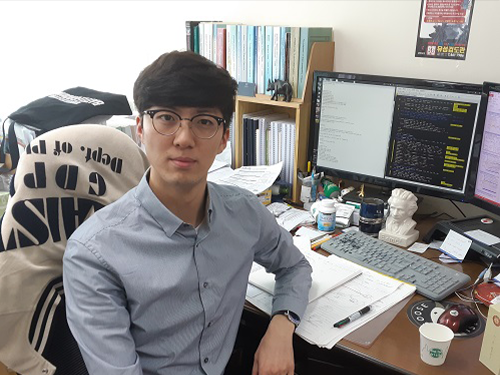 Park Chosen for Principality of Monaco/ITER Postdoctoral Fellowship
(Jaesun Park in the Integrated Master's and Doctoral Degree Program )
Jaesun Park from the Department of Physics, was selected as a Principality of Monaco/ITER Postdoctoral Fellowship recipient.
This program was established by the Principality of Monaco and an international organization, ITER, in January 2008 to support postdoctoral researchers who will be working for ITER. It is a relatively competitive program because it chooses only five people every two years.
The selected postdoctoral researchers will be working for ITER for two years while conducting research projects with outstanding researchers in the field of nuclear fusion.
ITER, one of the most ambitious energy projects, was launched in 1985 with the purpose of carrying out joint research on nuclear fusion energy. Currently, about 800 people are working for this organization.
Seven ITER member countries (i.e. Korea, the European Union, the United States, China, Japan, Russia, and India) are sharing the expenses and engaging in mega-scale science projects. Korea shares 9.1% (20 billion Euro) of the total construction costs of ITER experimental devices.
Park will begin his duties in early 2019.
2018.05.04 View 9603
Park Chosen for Principality of Monaco/ITER Postdoctoral Fellowship
(Jaesun Park in the Integrated Master's and Doctoral Degree Program )
Jaesun Park from the Department of Physics, was selected as a Principality of Monaco/ITER Postdoctoral Fellowship recipient.
This program was established by the Principality of Monaco and an international organization, ITER, in January 2008 to support postdoctoral researchers who will be working for ITER. It is a relatively competitive program because it chooses only five people every two years.
The selected postdoctoral researchers will be working for ITER for two years while conducting research projects with outstanding researchers in the field of nuclear fusion.
ITER, one of the most ambitious energy projects, was launched in 1985 with the purpose of carrying out joint research on nuclear fusion energy. Currently, about 800 people are working for this organization.
Seven ITER member countries (i.e. Korea, the European Union, the United States, China, Japan, Russia, and India) are sharing the expenses and engaging in mega-scale science projects. Korea shares 9.1% (20 billion Euro) of the total construction costs of ITER experimental devices.
Park will begin his duties in early 2019.
2018.05.04 View 9603